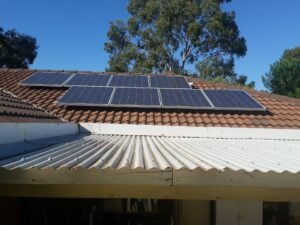Solar Power Benefits for Landlords
With energy prices perpetually on the rise, property investors are increasingly exploring sustainable solutions to mitigate costs and enhance the value of their investments. Among the most promising of these solutions is the installation of solar panels. Not only do solar panels significantly reduce energy bills, but they also offer numerous other benefits that make them a compelling choice for buy-to-let (BTL) properties in the UK. This article delves into how solar panels can transform your BTL investments, enhancing profitability and sustainability.
Understanding Solar Panel Technology
Solar panels, technically known as photovoltaic (PV) systems, convert sunlight into electricity. These panels contain PV cells that generate direct current (DC) electricity, which is then converted into alternating current (AC) by an inverter for use in homes and businesses. This technology not only reduces dependence on the national grid but also significantly cuts down energy costs by harnessing renewable energy.
Financial Benefits of Solar Panels for BTL Properties
Reduced Energy Bills
One of the most immediate benefits of installing solar panels is the reduction in energy bills. According to industry reports, the average household with solar panels can save between £150 to £300 annually on energy costs. For BTL properties, these savings can be a significant draw for potential tenants, particularly as energy prices continue to rise.
Smart Export Guarantee (SEG)
The Smart Export Guarantee (SEG) scheme allows property owners to sell excess energy back to the grid. Rates vary by supplier but typically range from 1 to 5 pence per kWh. This can further enhance the financial viability of solar panel installations, providing an additional income stream from surplus energy.
Long-term Savings and ROI
While the initial cost of solar panel installation can be high, ranging from £4,000 to £8,000 depending on the system size and complexity the long-term savings often justify the investment. The payback period for solar panels is generally around 7 to 10 years, after which the energy cost savings directly enhance the return on investment.
Impact on Property Value and Tenant Attraction
Enhanced Property Value
Properties with solar panels are increasingly attractive in the market. A study found that homes with solar installations can command higher resale values, with estimates suggesting an increase of up to 4%. This boost in property value can be particularly advantageous for BTL investors looking to maximize their return on investment.
Attracting and Retaining Tenants
Energy efficiency is a key consideration for many tenants. Solar panels can make a property more appealing by offering lower utility bills and a reduced environmental footprint. Happy tenants are more likely to stay longer, reducing vacancy rates and turnover costs for landlords. Jamie Johnson, CEO of FJP Investment, notes, “Investing in solar panels is not just about saving on energy bills; it’s about future-proofing your property and providing real value to tenants who are increasingly eco-conscious.”

Government Incentives and Financial Support
ECO4 Scheme
The ECO4 scheme is designed to help low-income households improve energy efficiency and includes grants for solar panel installations. This scheme can significantly offset the initial costs for eligible properties, making solar panels more accessible.
VAT Exemptions
As of 2023, solar panels are eligible for 0% VAT, which can reduce the installation cost by around £1,000. This financial incentive makes it more feasible for landlords to invest in solar energy solutions.
Boiler Upgrade Scheme
Additionally, the Boiler Upgrade Scheme provides financial support for high-efficiency heating systems, which can complement solar panel installations. This scheme offers £5,000 to £6,000 off the cost of heat pumps and biomass boilers, further enhancing the energy efficiency of properties.
Challenges and Considerations
Initial Installation Costs
Despite the long-term savings, the upfront cost of solar panel installation can be a barrier. However, various financing options, grants, and incentives can mitigate these expenses. It’s crucial for landlords to evaluate these options carefully and consider the long-term financial benefits.
Property Suitability
Not all properties are suitable for solar panels. Factors such as roof orientation, shading, and structural integrity can impact the effectiveness of solar installations. It’s advisable to consult with a professional to assess the suitability of your property before proceeding with installation.
Regulatory Compliance
Staying compliant with regulatory standards is essential. Landlords must ensure that any modifications, including the installation of solar panels, adhere to local building codes and regulations. This includes obtaining necessary permits and ensuring installations are conducted by certified professionals.
Conclusion
Solar panels offer a compelling solution for reducing energy bills and enhancing the value of buy-to-let properties. By investing in solar technology, landlords can enjoy significant financial benefits, attract and retain eco-conscious tenants, and contribute to environmental sustainability. With various government incentives and the potential for long-term savings, solar panels represent a smart investment for the future.
For property investors looking to stay ahead in a competitive market, embracing solar energy is a strategic move that promises substantial returns and a sustainable edge. By making an informed decision and leveraging available financial support, BTL investors can significantly enhance the profitability and appeal of their properties.
ARE YOU READY TO START INVESTING?
Subscribe to our mailing list now for exclusive deals, investment guides and the latest information from the property market.







